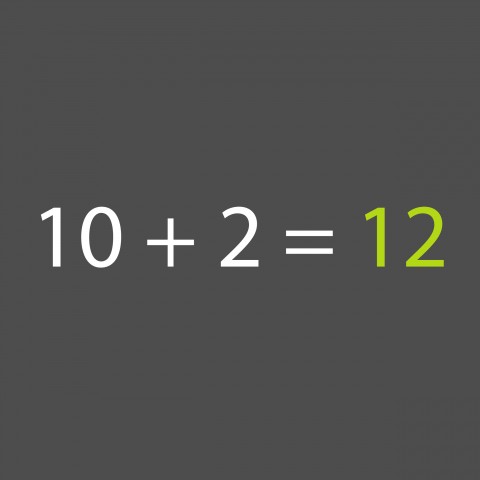Have you ever heard about the German bureaucracy? Well, if you haven’t heard about it yet, we can tell you that Germany is a true king when it comes to bureaucracy. This includes filling out forms, and what else?
You will have to confirm a lot of deadlines!
This is one of the reasons you should learn the days of the week in German, and have a good grasp of the calendar dates in German. You’ll get instructions either from a German office authority or when you receive letters. But in every case, there will be some kind of instructions on a deadline that you need to fulfill. From sending information back to bringing documents to German officials, you’ll be given plenty of dates both verbally or in writing.
To make sure that you understand everything correctly and that you’re meeting all the deadlines, we’ll give you, here and now, a guide to master the dates in the German language. We’ll give you detailed information on everything from how to write dates in German to understanding dates in German letters.
There are some special cases, but no worries, we’ll go over everything in detail so that you’ll be a professional by the end of this article.
Because let’s not forget all of the other times when knowing the date in German is important:
- Being on time for meetings
- Birthdays
- Special holidays
- Just about everything else
Table of Contents
- Dates in German Format: Writing & Reading German Dates
- How to Say the Years
- How to Say the Months in German
- How to Say the Days
- How to Say the Days of the Week
- Time Units
- Questions and Answers about Dates
- German Cultural Insights and Special Days
- How GermanPod101 Can Help You Overcome Bureaucracy Problems in Germany
1. Dates in German Format: Writing & Reading German Dates
Writing and reading the date can greatly vary from language to language. But even within a single language, we can see some slight differences in format. Let’s get right to it.
1- Writing Dates in German
So, how are dates written in German? There are two formats for writing the date in German:
- Long version:
Der 1. Februar 2019 (the 1st of February, 2019) - Short version:
Der 01.08.2019 (01/08/2019)
The main difference when writing the date in German is that you use dots between day, month, and year instead of a slash. Also note that in German, we use the format day/month/year, which may confuse native U.S. English speakers. And you may have noticed already, but in German, we write the month in capital letters.
2- Reading Dates in German
Just like the written format, there’s some difference when it comes to reading a date in German. There are three different forms. We’ll use this date as an example of how to read dates in German:
01.10.2019
| Der 01.10.2019 | Am 01.10.2019 | Der 1. Oktober 2019 |
| Der erste zehnte zweitausendneunzehn | Am ersten zehnten zweitausendneunzehn | Der erste Oktober 2019 |
| In this case, we’re using the nominative. | In this case, we’re using the dative. | In this case, we’re using the nominative, but with the written month instead. |
| Example: Heute ist der 01.10.2019. (Today is the 01/10/2019.) |
Example: Wir sehen uns am 01.10.2019. (We’ll see each other on the 01/10/2019.) |
Example: Morgen ist der 1. Oktober 2019. (Today is the first of October 2019.) |
There are even some differences in reading the year, but we’ll come to this soon.
2. How to Say the Years
When expressing dates in German, knowing how to talk about the years is essential. The year formats in German and English are very similar, but like with everything, there’s one exception.
Basically, we differentiate between the years that have passed before the year 2000, and after.
- If the year you want to talk about is after the year 2000, you have to read it like an actual number:
2019 is read like zweitausendneunzehn.
- If the year you want to talk about is before the year 2000, you have to read it like a year in English:
1901 is read like neunzehnhunderteins.
Translated, this would be read nineteen-hundred and one.
If you need help with pronouncing the words, we suggest you use the voice feature of GermanPod101’s dictionary.
3. How to Say the Months in German
When you learn about saying dates in German, you can’t forget the months. Luckily for you, the months in German are pretty basic and are similar to the English months. All the months are masculine, so you don’t need to worry about which gender to use.
One small exception Germans use is for the month of July. Generally, we say Juli, but some people use Julei instead. This is because Juli and Juni sound really similar and can generate confusion.
| German | English |
|---|---|
| Januar | January |
| Februar | February |
| März | March |
| April | April |
| Mai | May |
| Juni | June |
| Juli | July |
| August | August |
| September | September |
| Oktober | October |
| November | November |
| Dezember | December |
We’ve prepared for you a special lesson about the months where you can also listen and work on your pronunciation.
4. How to Say the Days
In German, the days have some special rules when using ordinal numbers. Here’s an overview of how to build them. We also gave you some more examples, as these aren’t only the rules for the days, but also for everything else that comes in a series.
- While the ordinal numbers in English usually end with “-th,” the German ones mostly end on -te or -ste.
- The first three numbers are irregular; you just have to memorize them.
- The numbers from four to nineteen are regular; they always end on -te.
- The numbers above nineteen are also regular; they always end on -ste.
| German | English |
|---|---|
| 1. Der erste | The first |
| 2. Der zweite | The second |
| 3. Der dritte | The third |
| 4. Der vierte | The fourth |
| 5. Der fünfte | The fifth |
| 10. Der zehnte | The tenth |
| 11. Der Elfte | The eleventh |
| 20. Der Zwanzigste | The twentieth |
| 31. Der Einunddreißigste | The thirty-first |
In our free online course, you can check out our free Numbers vocabulary list. This will help you with pronunciation and will provide you with more helpful insight.
5. How to Say the Days of the Week
If you already know the days of the week in English, the days in German shouldn’t be that much of a problem; most days sound fairly similar to their English equivalent. Apart from Wednesday, all days end with the German word for “day” (Tag), and to make it even easier for you, all German days are masculine.
In our overview, you can see the “days of the week” (die Tage der Woche).
| German | English |
|---|---|
| Montag | Monday |
| Dienstag | Tuesday |
| Mittwoch | Wednesday |
| Donnerstag | Thursday |
| Freitag | Friday |
| Samstag Sonnabend |
Saturday |
| Sonntag | Sunday |
You’re asking why we have two terms for Saturday? Well, in most parts of Germany, you’ll use Samstag. But in Austria and the German part of Switzerland, as well as some select cities in Germany, they use Sonnabend (or “Sunday eve” in English). But don’t worry about that, because everybody will understand both terms, so just choose the one you feel more comfortable with.
In our special vocabulary list about the days of the week in German, you can learn everything about speaking and pronouncing the things you learned in this chapter.
6. Time Units
Now that you have a better idea of how to say dates in German, you may find it useful to have some relative time unit vocabulary under your belt.
| German | English |
|---|---|
| Die Sekunde | second |
| Die Minute | minute |
| Die Stunde | hour |
| Der Tag | day |
| Die Woche | week |
| Der Monat | month |
| Das Quartal | quarter |
| Das Halbjahr | semester |
| Das Semester | semester |
| Das Jahr | year |
| Das Jahrzehnt | decade |
| Das Jahrhundert | century |
| German | English |
|---|---|
| Die MorgendämmerungDas Morgengrauen Dämmerung |
Dawn / Daybreak |
| Der Morgen | Morning |
| Der Vormittag | Late morning |
| Der Mittag | Noon |
| Der Nachmittag | Afternoon |
| Der Abend | Evening |
| Die Nacht | Night |
7. Questions and Answers about Dates
We want to prepare you as best as possible for talking about dates in German. This requires that you really understand expressing dates in German, both in writing and verbally.
So we want to help you with some typical questions that you may be asked during your time in Germany. And of course, we’ll give you the perfect answers for each one.
| Question | Answer |
|---|---|
| Wann ist dein Geburtstag? “When is your birthday?” |
Mein Geburtstag ist am 03.10.1993. “My birthday is on the 03/10/1993.” |
| Wann wollen wir uns treffen? “When do we want to meet each other?” | Lass uns am ersten April treffen. Das ist in zwei Wochen. “Let’s meet on the first of April. That is in two weeks.” |
| Welchen Tag haben wir heute? “Which day do we have?” *This is the same as asking “What is today?” |
Wir haben heute den vierten März. “Today, we have the 4th of March.” *This is the same as saying “Today is the 4th of March.” |
| Wann ist Einstein gestorben? “When did Einstein die?” |
Einstein ist am 18. April 1955 gestorben. “Einstein died on the 18th of April in 1955.” |
8. German Cultural Insights and Special Days
This chapter will help you practice everything you learned in this lecture, while giving you some insight into German culture at the same time. There are a few days in the German calendar that you should keep in mind when living there.
| Christi Himmelfahrt | Ascension of Christ | Christi Himmelfahrt ist immer an einem Donnerstag. “The Ascension of Christ is always on a Thursday.” |
| Pfingstmontag | Whit Monday | An einem Montag im Mai ist Pfingstmontag. “Whit Monday is on a Monday in May.” |
| Tag der deutschen Einheit | Day of German Unity | Am dritten Oktober ist der Tag der deutschen Einheit. “On the third of October is the Day of German Unity.” |
| Neujahr | New Year | Der erste Tag im Jahr, der 01.01.2019 ist Neujahr. “The first day of the year, the 01/01/2019, is New Year.” |
| Weihnachtstag | Christmas Day | Der erste und der zweite Tag nach Heiligabend sind Feiertage. “The first and the second day after Christmas Eve are holidays.” |
| Valentinstag | Valentines Day | Der vierzehnte Februar ist der Tag der Verliebten. “The 14th of February is the day of people in love.” |
| Oktoberfest | Oktoberfest | Das Oktoberfest findet zwei Wochen im September und Oktober statt. “The Oktoberfest is celebrated for two weeks during September and October.” |
| Festivals | Festivals | Der Sommer ist die Jahreszeit für Festivals in Deutschland. “The summer is the season for festivals in Germany.” |
| Fasching | Carnival | Fasching ist wie eine fünfte Jahreszeit für viele Deutsche. Er beginnt am 11.11. Um 11 Uhr. “Carnival is like a fifth season for some Germans. It begins on the 11/11 at 11 o’clock.” |
9. How GermanPod101 Can Help You Overcome Bureaucracy Problems in Germany
Well, congratulations for making it through our intense, but surely helpful, lesson about dates, days, and times of day in the German language. We hope that you now have a much better understanding of how dates in German grammar work, how to give dates in German, and perhaps most importantly, how to format them.
We know that this isn’t an easy topic, and that this requires some time to understand completely. But once you see all the similarities and differences between English and German dates, you’ll be an expert in this subject in no time.
To practice telling dates in German, why not drop us a comment with today’s day in German? 😉
If you want to really boost your German skills, we suggest that you try out our private teacher program which focuses on your goals and your current level.
But we won’t leave you without making a quick gift to you. We have free courses and lessons on GermanPod101.com that can help German learners at every level and stage of their learning journey:
Save yourself a spot today!

















